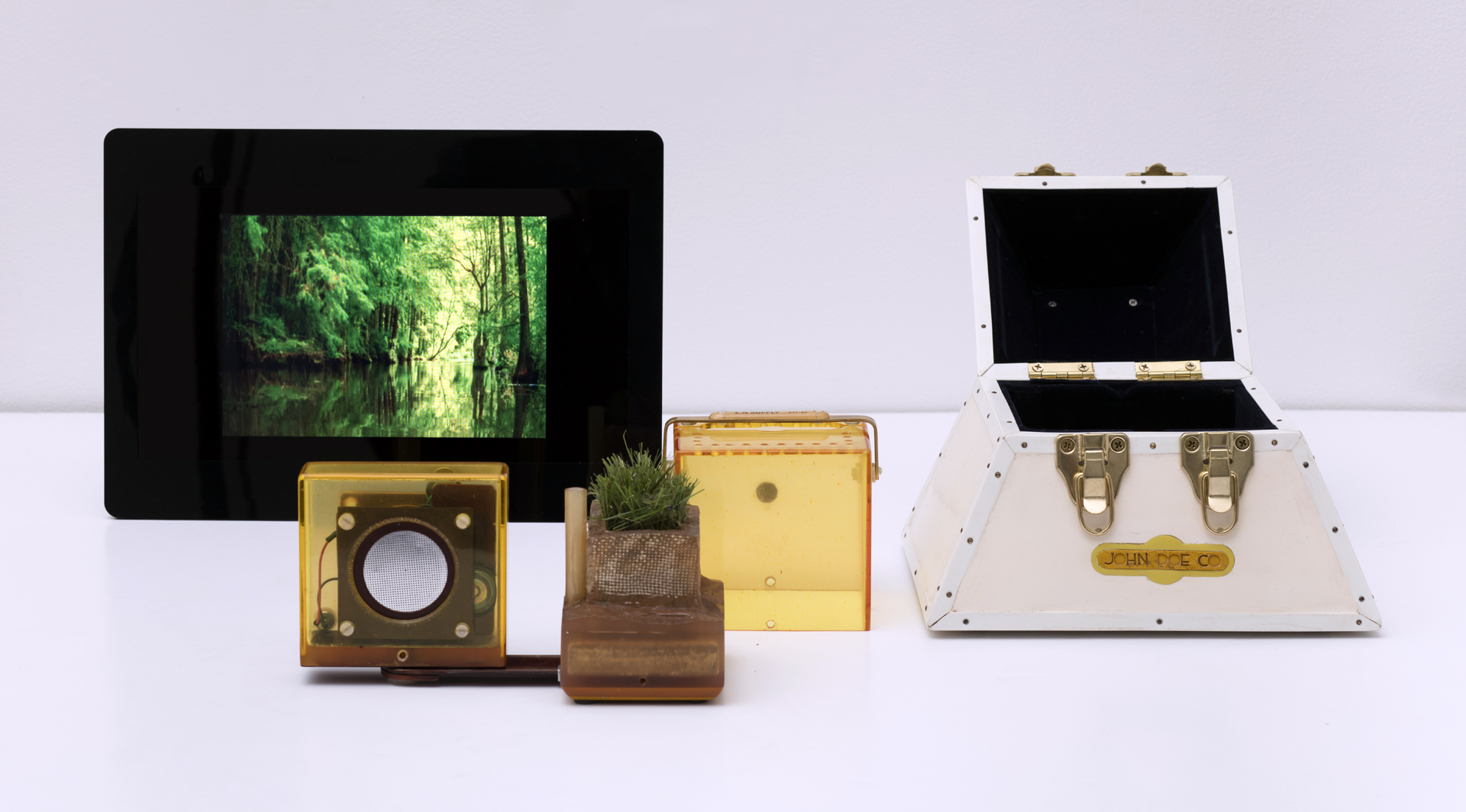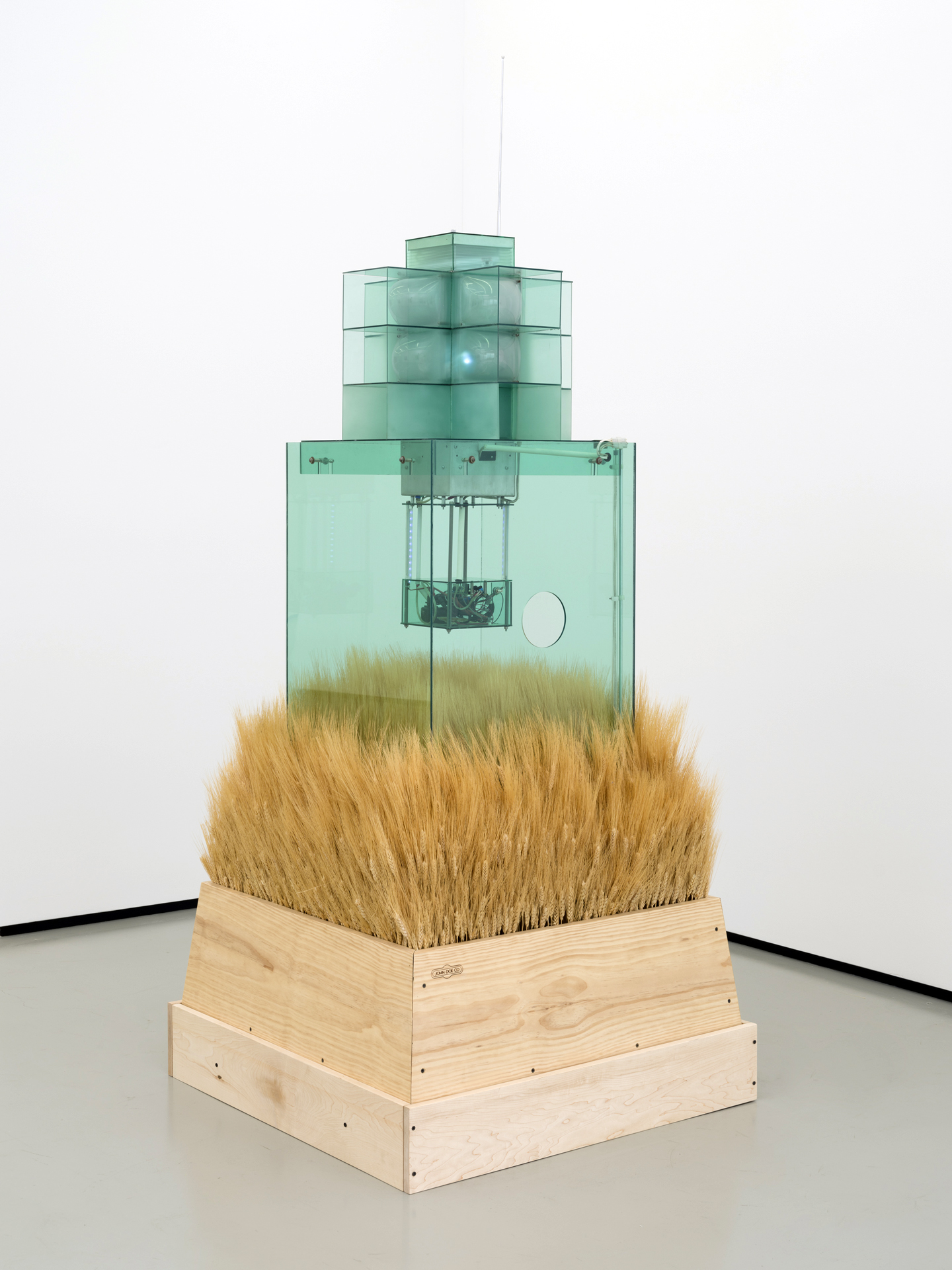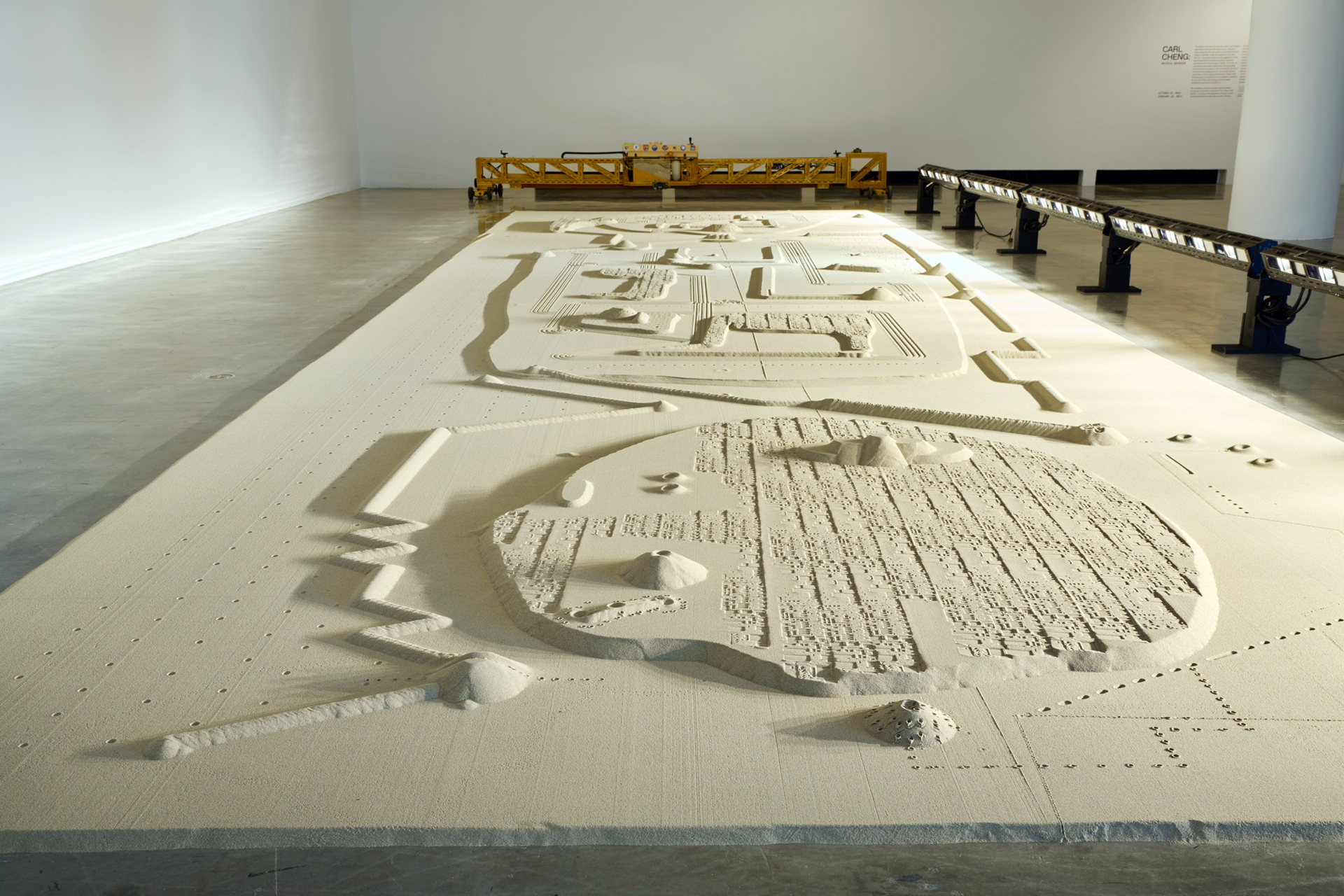
Carl Cheng / John Doe Co., Emergency Nature Supply Kit (E.N. Supply, No. 271-OJ), 1971. Polyester resin, water, green patch of grass, electronic bird sounds generated from speaker and battery. Courtesy of George Wanlass, Venice, CA. Photo credit: Jeff McLane.
Klein is working closely with artist Carl Cheng to organize Nature Never Loses, a survey of his prescient, genre-defying work from the 1960s to the present. Cheng began his career in the experimental context of the Southern Californian art scene and the post-war aerospace industry, resulting in artworks that operate at the intersection of identity, technology, and ecology. Over the last six decades, he has worked in a variety of media to reflect on environmental change, the relevance of art institutions to their publics, and the role of technology in society. Although he originally gained recognition for his photographic sculptures, his inventive art practice has primarily centered on the creation of “tools” employed in the production of artworks, “nature machines” that anticipate an artificial world shaped by humans, and site-specific interventions aimed at engaging broad audiences.

Carl Cheng / John Doe Co., Early Warning System, 1969–2023. Fabricated plastic, electronics, projector mechanism, radio, wheat, wood. Courtesy the artist and Philip Martin Gallery. Photo credit: Jeff McLane.
Since 1967 Cheng has also worked under the moniker John Doe Co. as a simultaneous critique of corporate culture and the Vietnam War-era discrimination he faced as an Asian American. His interest in new, often unusual materials and his years spent navigating government bureaucracies to create public artworks imbue his work with a generosity, irreverence, and playfulness. His work has also consistently probed questions of natural agency and the extractive impact of humans on the environment, from his early Erosion Machines (1969) to his more recent Tar Pool Project (2020). These investigations are tied to his unique approach to technology as an artistic tool and his critique of neoliberal notions of progress that undergird both the art market and Silicon Valley. Because the majority of Cheng’s oeuvre is still in his possession, the exhibition will be an opportunity to animate the arc of his career through a presentation of artworks that are multidisciplinary, ephemeral, material, process-based, and interactive.

Installation view, Carl Cheng: Material Behavior, REDCAT, Los Angeles (October 22, 2022–February 26, 2023). Courtesy of REDCAT. Photo credit: Brica Wilcox.
Carl Cheng: Nature Never Loses is part of Teiger Foundation's Climate Action Pilot.